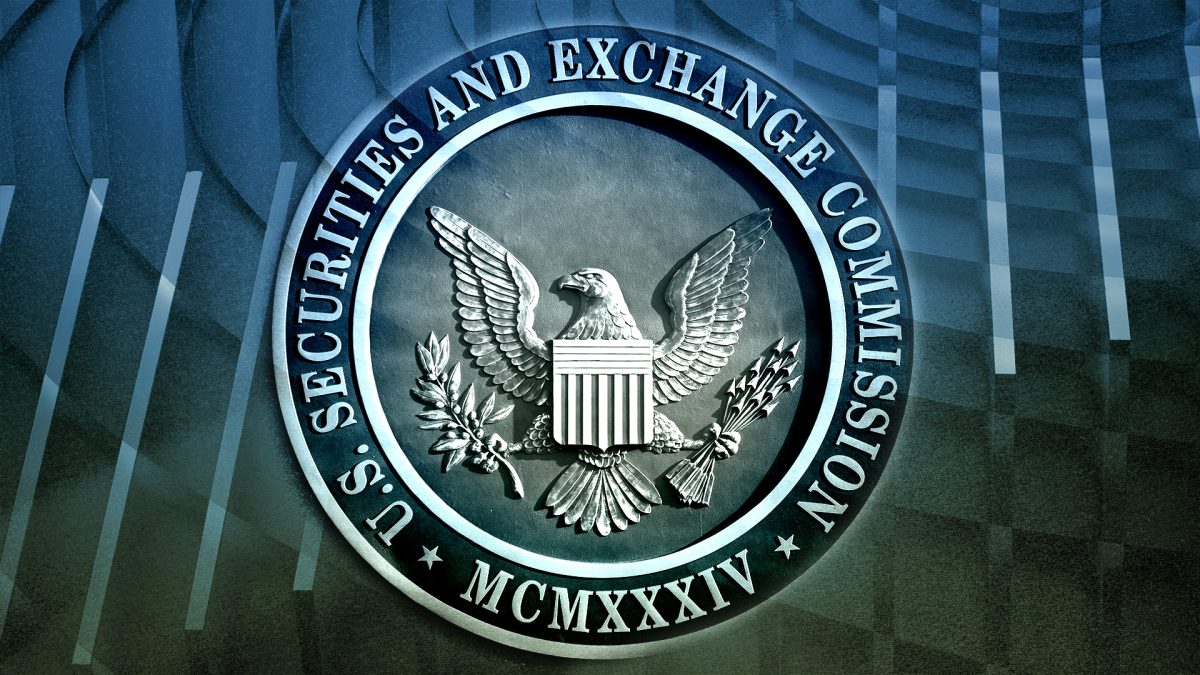US Senate passes measure withdrawing SEC accounting bulletin

Quick Take
- The Senate voted 60 to 38 on Thursday on a resolution to overturn the SEC’s SAB 121, which establishes certain accounting standards for firms that custody crypto.
- The resolution will likely be vetoed when it reaches President Joe Biden’s desk.

The U.S. Senate passed a measure Thursday to overturn a Securities and Exchange Commission bulletin that establishes certain accounting standards for firms that custody crypto. The measure will now go to President Joe Biden's desk, where it will likely be vetoed.
The Senate voted 60 to 38, which is not enough votes to override a presidential veto. Several Democrats, including Senate Majority Leader Chuck Schumer, D-N.Y., voted for the measure on Thursday. A handful of other Democrats including Sen. Cory Booker of New York and Jon Tester of Montana also voted to repeal the bulletin.
Last week, the House voted to pass the same measure, overturning SAB 121, by a vote of 228-182, with mostly Republicans in favor of the measure, as did 21 Democrats. That vote count is below the two-thirds threshold the House needs to override a presidential veto.
The SEC Staff Accounting Bulletin, also called SAB 121, was first published in 2022 and has drawn controversy over the past year over concerns in the crypto industry that it could prevent banks from safeguarding digital assets. It requires firms that custody crypto to record customer crypto holdings as liabilities on their balance sheets.
Meanwhile, the White House said in a "statement of administration policy" posted last week President Biden would veto it,.
The White House said that "limiting the SEC’s ability to maintain a comprehensive and effective financial regulatory framework for crypto-assets would introduce substantial financial instability and market uncertainty."
As expected, many in the industry are critical of the Biden Administration's efforts to keep SAB 121 in place. Cody Carbone, vice president of policy for the Chamber of Digital Commerce, said a veto would be "nonsensical."
"I hope the President looks at the bipartisan support of this Resolution not as a rebuke on the administration, but as consensus that no independent regulator is above the law and consumer protection should always trump personal vendettas against a disfavored industry," Carbone said in a statement to The Block.
During debates before the vote, Sen. Elizabeth Warren, D-Mass., who voted against the measure, said crypto has unique risks compared to other assets.
"We have seen multiple hacks of crypto platforms," Warren said. "The unique risks of crypto can create liabilities that seriously impact a company's financial condition. SAB 121 simply clarifies how companies should account for those risks in their financial disclosures. That's all it's doing."
Under the Congressional Review Act
Last year, the Government Accountability Office said SAB 121 is subject to the Congressional Review Act, which requires agencies to submit a report on the rule to Congress. The CRA, enacted in 1996, aims to bolster congressional oversight of agency rulemaking.
The GAO said the bulletin met the definition of a rule and, under the CRA, said the SEC should have submitted a report on the rule to lawmakers. However, the SEC has said the bulletin did not meet the definition of a rule and is not subject to the CRA, according to GAO's report.
Disapproving a rule under the Congressional Review Act immediately overturns it and has a long-term effect on the SEC's ability to issue similar rules, according to a report from the Congressional Research Service released on Wednesday.
"If the SEC were to reissue the bulletin, provided that it met the CRA’s definition of rule, Congress could again use the CRA to overturn the bulletin on the basis that it was too similar to the disapproved SAB-121 (or for any other reason). Congress could also use its legislative powers in other ways, not just through the CRA, to respond to any subsequent SEC bulletin or other action," according to the report.
SAB 121 is "non-binding staff guidance" that strengthens disclosures to investors, an SEC spokesperson said in a statement to The Block.
"Time and again, we have seen crypto firms fail and watched as their customers lined up at the bankruptcy court in hopes of getting what they thought was legally theirs," the SEC spokesperson said. "We’ve also seen the risks to investors in firms that safeguard these assets when they are hidden off balance sheet. These disclosures provide investors important line of sight into the level of risk taken by crypto custodians."
What's next
Ron Hammond, director of government relations at the Blockchain Association, said the Senate-passed resolution is "guaranteed" to get a veto.
"This isn’t shocking though as a number of CRAs during Biden’s tenure have made it to his desk on a bipartisan basis and received a veto," Hammond said in a statement to The Block. "To override that veto, it will require a 2/3 majority, which is a steep hill to climb."
Biden, for example, vetoed a measure earlier this month to overturn a joint employer rule that had passed the Senate and House by bipartisan margins, according to Bloomberg Law.
"One thing the fight on SAB 121 has shown in DC is that there is a large constituency of grassroots and industry engaged," Hammond said. "This is also the first time many in Congress are hearing about the number of people passionate about this issue. With the major market structure vote looming next week in the full House, there are a lot of folks in DC hearing about crypto."
Updated May 16 at 6 p.m. UTC time to include details on votes and quotes from Sen. Warren
Updated May 16 at 8:42 p.m. UTC time to include comments from the SEC
Disclaimer: The Block is an independent media outlet that delivers news, research, and data. As of November 2023, Foresight Ventures is a majority investor of The Block. Foresight Ventures invests in other companies in the crypto space. Crypto exchange Bitget is an anchor LP for Foresight Ventures. The Block continues to operate independently to deliver objective, impactful, and timely information about the crypto industry. Here are our current financial disclosures.
© 2025 The Block. All Rights Reserved. This article is provided for informational purposes only. It is not offered or intended to be used as legal, tax, investment, financial, or other advice.







